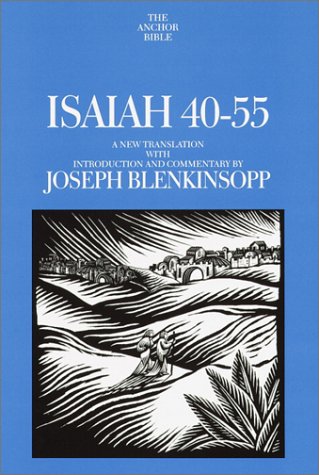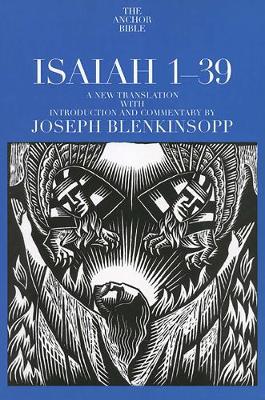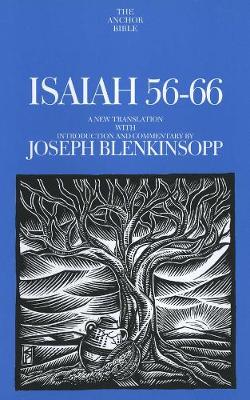Anchor Bible Commentary (YUP)
3 total works
Second Isaiah was written in the sixth century b.c.e., in the years just before the fall of the mighty Babylonian Empire, by an anonymous prophet whom history has erroneously identified with the real Isaiah (born ca. 765 b.c.e.). Scholars know Second Isaiah was written by someone other than Isaiah because the contexts of these prophecies are so very different. When Second Isaiah was written, the prophet believed that Israel's time of suffering was drawing to a close. There was, he insisted, a new age upon them, a time of hope, peace, and renewed national prosperity. The main thrust of the prophet's argument was intended to rally the spirits of a people devastated by war and conquest. One of the most famous examples of this optimistic tone is the well-known and beloved Song of the Suffering Servant, which is found in Chapters 52-53, and about which Blenkinsopp has some challenging new ideas.
The final chapters of Second Isaiah, however, are in an entirely different key as it becomes clear that the new world the prophet foresaw earlier was not going to come to pass. This despair finds its most poignant expression in the final section of the Book of Isaiah, which Blenkinsopp will address in his forthcoming third volume.
Writing a commentary on the book of Isaiah in the middle of a paradigm shift in biblical studies, and in the study of the prophetic books in particular, is no easy task. The book of Isaiah has been the object of more scholarly interest over the past two or three decades than during the preceding century. At the same time, much of the received wisdom on the formation of the book has been called into question, including such matters as the date of its several components, the standard tripartite division, the role (if any) to be assigned to the prophet Isaiah himself, and the passages dealing with the anonymous Servant of the Lord. A great deal of effort has been, and continues to be, expended in exploring new approaches to the book, both within the conventional critical methodologies and beyond them.
This commentary by Joseph Blenkinsopp on the first thirty-nine chapters of the book, the first of a three-volume commentary on Isaiah, is written from a critical perspective in the belief that only in this way can these texts be given the opportunity to say what they have to say-and also in the conviction that what they have to say still retains its transforming power for those willing to listen attentively today. The result is a commentary of unequaled brilliance and insight that will stand as the definitive study of one of the Hebrew Bible's most compelling and elusive books.
The world's leading authority on the prophet Isaiah brings his distinguished three-volume commentary on the book of Isaiah to a conclusion with this new translation and critical discussion of the final eleven chapters.
The concluding section of the book of Isaiah, sometimes referred to as Third or Trito Isaiah, had a profound impact on the Christian movement in its formative phase, including such central issues as the identity of the founder, the profile of the disciple, and the Gentile mission. In this thorough and informative commentary, Joseph Blenkinsopp shows that while these chapters maintain continuity with Second Isaiah, they must be considered in the light of a new set of circumstances.
The texts present a community beset by severe problems, attempting to cope with disappointed expectations and trying to maintain its faith in the reality, power, and benevolence of the God of traditional religion. Blenkinsopp discusses in detail the issues that divide the community, from concerns about the efficacy of religious practices (prayer, fasting, Sabbath observance, and sacrifice) to questions about who may claim the name of Israelite and under what conditions, to what kind of relations should be maintained with outsiders. In examining each of these topics, Blenkinsopp shows that they provide evidence of an emerging Judaism seeking its own identity and self-definition and testify to the existence of a prophetic discipleship inspired by the person and teaching of the charismatic servant whose fate is described in the previous section of Isaiah.
Reflecting the same standard of excellence as Blenkinsopp's first two volumes on Isaiah, this is an important contribution to the prestigious Anchor Bible Commentary series.


